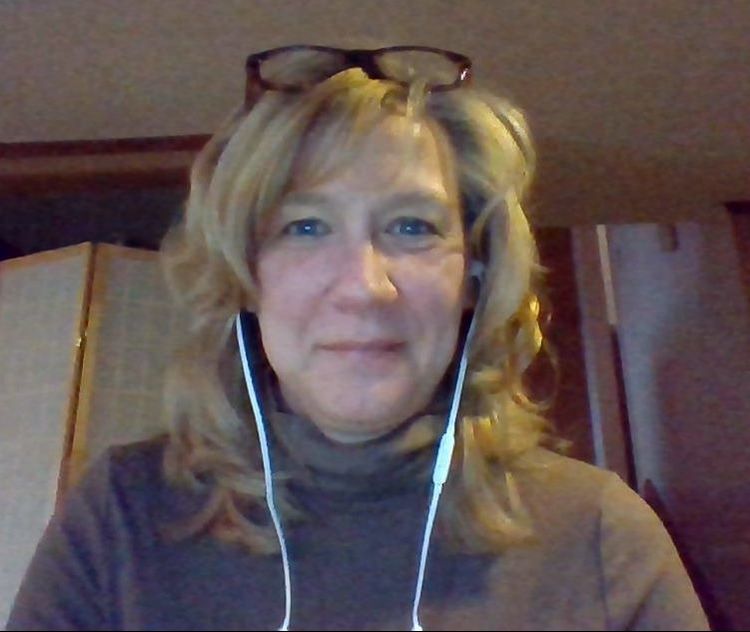
I just finished an episode of Oprah’s Super Soul conversations: Amandla Stenberg: My Authenticity is my Activism. After listening to this teen, I feel more empowered to be my authentic self. (She is the actress who portrayed Rue in The Hunger Games and Starr Carter in The Hate U Give.)
She talked about her feelings growing up about her hair, herself as a black woman and someone who wants to make a difference in the world. Amandla, which is the Zulu and Xhosa word for "power," shared her experience of being ‘other’ in her own school, community, country and even her own skin. She speaks honestly about topics that white women only have a glimpse.
It made me think back to a conversation I had with my hairdresser just a few days ago. I asked what the new hair styles are. She paused and said, “There are some new cuts that people want but really the trend is to rock your own style.”
Wow!
This is what I thought when I heard that:
First: Good because I was in the process of getting the same cut I have had for years.
Second: It is about damn time.
The trend is to “rock my own style”. I can totally get behind that…and honestly, it is very freeing! Not easy, but freeing. I heard a bit of myself as I listened to Amandla. I am long past high school and yet I struggle some days to feel that same self-love and acceptance.
I can let self-impose questions hold me back:
· Am I doing enough for the world?
· Should I learn a new skill to make myself more marketable?
· Do I need to forgive that person?
· Will I take the risks I need to be a better me?
OR
I allow myself to hear the answers first that will help me “rock my own style”:
· I am enough.
· I am strong, wise, open, kind.
· I am a beloved Child of God.
Even as I think about my bad days, it is nowhere near the daily reality, the daily struggle of women of color in the United States. I am still automatically accepted as the “norm” and it is only because I my white skin. I may have times when I am deeply self-conscious but I can still walk out in the community and not automatically have stereotypes define me.
This is why Amandla inspired me. She already is intentional about caring for herself when she feels vulnerable. She is digging deep. She knows her truth: she can rock her own awesome self and as she says, “be comfortable in her own skin”.
If she can do it, then so can I!
Take a listen to Amandla!
She talked about her feelings growing up about her hair, herself as a black woman and someone who wants to make a difference in the world. Amandla, which is the Zulu and Xhosa word for "power," shared her experience of being ‘other’ in her own school, community, country and even her own skin. She speaks honestly about topics that white women only have a glimpse.
It made me think back to a conversation I had with my hairdresser just a few days ago. I asked what the new hair styles are. She paused and said, “There are some new cuts that people want but really the trend is to rock your own style.”
Wow!
This is what I thought when I heard that:
First: Good because I was in the process of getting the same cut I have had for years.
Second: It is about damn time.
The trend is to “rock my own style”. I can totally get behind that…and honestly, it is very freeing! Not easy, but freeing. I heard a bit of myself as I listened to Amandla. I am long past high school and yet I struggle some days to feel that same self-love and acceptance.
I can let self-impose questions hold me back:
· Am I doing enough for the world?
· Should I learn a new skill to make myself more marketable?
· Do I need to forgive that person?
· Will I take the risks I need to be a better me?
OR
I allow myself to hear the answers first that will help me “rock my own style”:
· I am enough.
· I am strong, wise, open, kind.
· I am a beloved Child of God.
Even as I think about my bad days, it is nowhere near the daily reality, the daily struggle of women of color in the United States. I am still automatically accepted as the “norm” and it is only because I my white skin. I may have times when I am deeply self-conscious but I can still walk out in the community and not automatically have stereotypes define me.
This is why Amandla inspired me. She already is intentional about caring for herself when she feels vulnerable. She is digging deep. She knows her truth: she can rock her own awesome self and as she says, “be comfortable in her own skin”.
If she can do it, then so can I!
Take a listen to Amandla!

 RSS Feed
RSS Feed